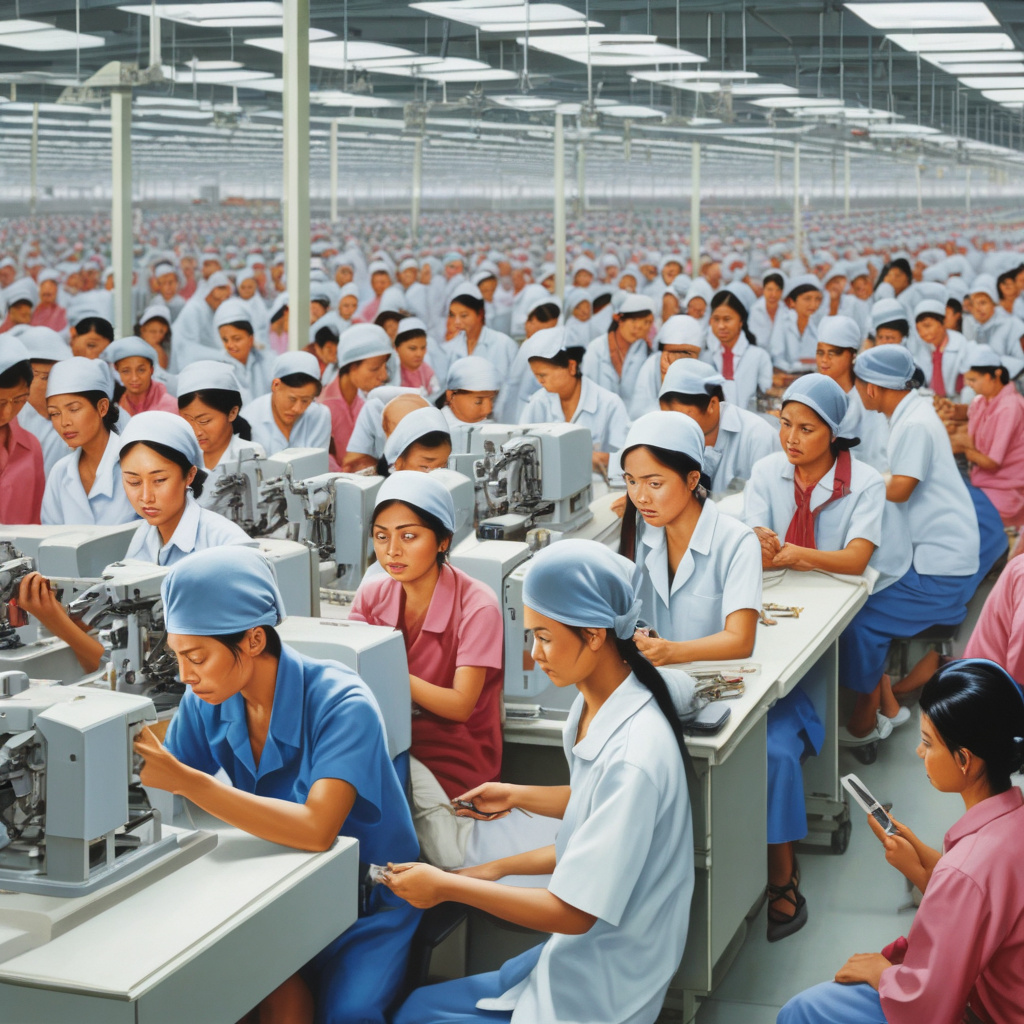In a recent development reported by Bloomberg, Foxconn, the Taiwanese multinational electronics contract manufacturer, has made a significant decision regarding its operations in India. More than 300 Chinese employees working at its iPhone factories in India have been instructed to return to their home country. This move has sparked considerable interest and speculation within the tech industry, as it raises questions about the reasons behind such a decision and its potential implications for both Foxconn and the broader technology manufacturing landscape.
Foxconn’s directive to repatriate Chinese staff from its Indian facilities comes at a time when the global supply chain dynamics are undergoing notable shifts. The COVID-19 pandemic has introduced unprecedented challenges, leading companies to reassess their operational strategies and workforce distribution. By calling back employees to China, Foxconn is signaling a strategic realignment that aims to optimize its production capabilities and enhance operational efficiency in response to evolving market conditions.
This decision by Foxconn underscores the intricate interplay between geopolitical factors, labor dynamics, and economic considerations in the technology manufacturing sector. As one of the key players in the electronics industry, Foxconn’s actions are closely watched and analyzed for potential insights into broader trends shaping the competitive landscape. The move to relocate Chinese employees from India sheds light on the company’s efforts to adapt to changing circumstances while maintaining its position as a leading manufacturer of consumer electronics.
The implications of Foxconn’s decision extend beyond its immediate workforce adjustments. This move could have ripple effects on the Indian manufacturing sector, particularly in the context of the country’s ambitions to become a hub for electronics production. As India seeks to attract foreign investment and foster a conducive environment for manufacturing, developments involving major players like Foxconn carry significance for policymakers, industry stakeholders, and analysts monitoring the sector’s trajectory.
In navigating the complexities of global supply chains and workforce management, companies like Foxconn are constantly evaluating their strategies to stay agile and competitive in a fast-paced industry. The decision to recall Chinese employees from Indian factories serves as a testament to the dynamic nature of the technology manufacturing landscape, where adaptability and foresight are crucial for sustained success. By aligning its operations with shifting market demands, Foxconn aims to position itself strategically for future growth and resilience in an ever-evolving industry.
As the story of Foxconn’s directive unfolds, it offers valuable insights into the intricate web of factors influencing decision-making processes in the technology sector. From geopolitical considerations to operational efficiency and market dynamics, each aspect plays a role in shaping the strategies of industry leaders like Foxconn. By staying attuned to these developments and analyzing their implications, stakeholders can gain a deeper understanding of the forces driving change in the global technology ecosystem.
In conclusion, Foxconn’s decision to recall over 300 Chinese employees from its iPhone factories in India represents a strategic move aimed at optimizing operations and responding to evolving market conditions. This development highlights the multifaceted nature of decision-making in the technology manufacturing sector and underscores the importance of adaptability and foresight in staying competitive. As industry dynamics continue to evolve, keeping a pulse on developments such as these is essential for understanding the shifting landscape of global technology production.

